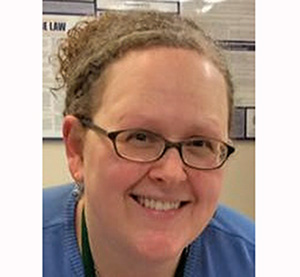
In Masechet Rosh Hashanah, Tu B’Shevat marks the beginning of the year for trees, assigning a starting point along a cycle of the natural world. What is this initial stage that, according to chazal, occurs in Eretz Yisrael at about the 15th of Shevat? It is the point at which trees cease to absorb water from the ground for their nourishment, and instead receive sustenance from within their own “selves,” their juices and sap. To use an idiom more closely associated with nations than with trees, this period in their natural cycle marks their independence, when they are no longer reliant on outside sources for their survival and productivity.
Celebrating independence can be a tricky thing. We are the beneficiaries of the riches that trees provide, and their ability to thrive autonomously correlates with a higher quality of life for us—and with a more vigorous Eretz Yisrael. In the world of educating and nurturing people on the cusp of adulthood, though, granting certain kinds of independence can feel fraught with risk. Here I am thinking not about the physical threats associated with freedoms that adolescents may pursue haphazardly, but rather, perceived religious and emotional risks associated with encouraging students’ intellectual independence by engaging with their religious questions and doubts. At Ma’ayanot and other schools, these have included:
Is God really listening to me when I daven? And how would I know?
How can we trust there are no weak links in the chain of the mesorah (our inherited tradition)?
With a corpus of halachah that has evolved over time, what proof do we have that our practice is correct?
Why doesn’t the status of women in halachah change in an atmosphere that embraces the value and intellectual capacity of women?
How can the Torah dictate that homosexuals, whose drive is inborn, have a life unfulfilled with love?
In casting doubt on fundamentals of Jewish belief and leaving room to infer that students are wavering about their own observance, these questions and others like them may lead a teacher or parent to critique, ignore or offer pat answers.
Adolescents are savvy to what they perceive as artifice and intransigence, and they are quick to call out adults (and each other) on those offenses. Stifling questions that are brewing in our students’ and children’s inquisitive minds by either purposefully ignoring them or doggedly quashing them will not render their questions irrelevant. Furthermore, inhibiting such exploration is not in the best interest of our children and students. They may reject their parents and teachers as trusted advisers and find other venues for exploring, and then we have lost the precious opportunity to empathize and normalize their searching and to guide them gently through their journeys. Worse, they may temporarily internalize the notion that their questions are not appropriate as part of Jewish learning—but as with most thoughts suppressed, these questions are likely to resurface later, and potentially in the form of crisis rather than search.
If young men and women disdain unyielding dogmatism, they thrive on honesty and transparency, reaching their greatest potential of mature thought and accountability when those elements frame the conversation. Honoring their questions that stem from the complexity of what it means to be a religious and reflective person means honoring them personally. It also affirms for them that these struggles can be aligned with authentic Jewish observance rather than hostile to it. Developing a mindset that welcomes these questions into the conversation may be one of the most important things a teacher can do to foster true growth.
I am thinking, for example, of the senior who shared with some of us, following her friend’s tragedy, that she was in an emotional state in which she could not daven. The conversations that proceeded were empathetic and contemplative, focused on understanding her feelings and the importance of processing them rather than on telling her how to feel. She has since, on her own, come back to prayer as an essential component of her halachic and spiritual life. I cannot imagine how emotionally damaging it would have been had she been berated or offered trite reflections on the value of tefillah.
In another instance, a freshman at Ma’ayanot was deeply troubled by the Torah’s treatment of non-Jews, and in response, her Tanach teacher invited her to meet and study an article that presents various perspectives on this matter and urges us to embrace our moral instincts in our quest to understand Torah. This teacher’s impulse to acknowledge the student’s struggle and learn together, rather than rebuke or offer banalities, helped her toward a trajectory of religious development and leadership. In other cases, we have seen fit to integrate such questions into full-class discussions, with inspiring outcomes of thoughtful Jews who continue to probe and appreciate that they stand on the shoulders of giants, past and present, who have done the same.
Sefer Mishlei tells us that for those who hold fast to Torah wisdom, it is an etz chayim, a tree of life. For many people, the richest, most religiously motivating Torah learning inspires a search for wisdom that lives and breathes. Students for whom challenging questions emerge naturally from within the study of Torah often flourish in the encounter between religious devotion and independent thought—and a school or family that is prepared to engage in it becomes a true partner in their development.
By Tamar Appel, Ma’ayanot Yeshiva High School for Girls
Tamar Appel is Assistant Principal at Ma’ayanot Yeshiva High School for Girls









